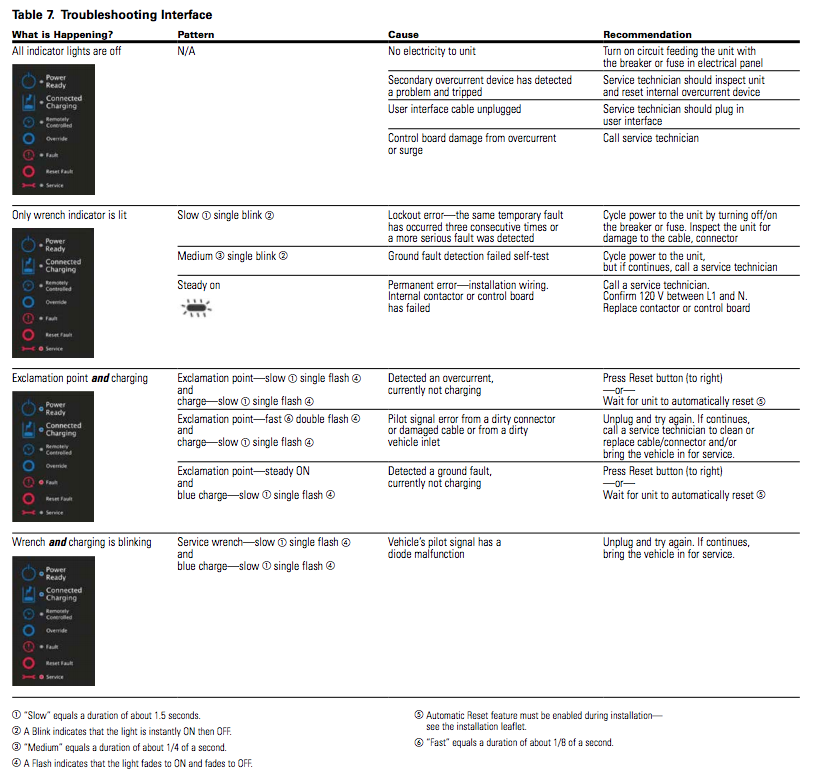Roostre
Active member
Hi all!
New to Leafs and ownership of EVs in general. MY wife and daughter have both recently moved into Leafs. The wife's Leaf is a 2012 SL and it has the ChadeMo and 3.3kw charger. My daughter's is a 2013 SV with only the 6.6kw charger.
I originally installed an Eaton EVSE at our home that is capable of 7.2kw. It worked great and always charged the 3.3kw car. When my daughter bought hers I told her I would help her get an L2 EVSE for her house just cause I'm a good dad that way. In a bonehead Ebay move I thought I had ordered her the same L2 Eaton that we have, but it is only a 16 amp model.
When we installed the Ebay Eaton EVSE it charged the 2012 SL 3.3 kw car just fine, but the next day my daughter called and told me it would not charge her 6.6kw car- it would just go into 'fault' mode.
I swapped her EVSEs as we didn't need the higher capability. However, when she comes to visit she cannot use our L2 to charge as it faults with her '13. I thought that there was some kind of 'handshake' communication that takes place between the EVSE and the car which would tell the car that it could only pull 3.3kw (or whatever 16 amps comes to ) when it was hooked to that EVSE?? Is her car the issue, or is it the Eaton EVSE?
Thanks,
Corey
New to Leafs and ownership of EVs in general. MY wife and daughter have both recently moved into Leafs. The wife's Leaf is a 2012 SL and it has the ChadeMo and 3.3kw charger. My daughter's is a 2013 SV with only the 6.6kw charger.
I originally installed an Eaton EVSE at our home that is capable of 7.2kw. It worked great and always charged the 3.3kw car. When my daughter bought hers I told her I would help her get an L2 EVSE for her house just cause I'm a good dad that way. In a bonehead Ebay move I thought I had ordered her the same L2 Eaton that we have, but it is only a 16 amp model.
When we installed the Ebay Eaton EVSE it charged the 2012 SL 3.3 kw car just fine, but the next day my daughter called and told me it would not charge her 6.6kw car- it would just go into 'fault' mode.
I swapped her EVSEs as we didn't need the higher capability. However, when she comes to visit she cannot use our L2 to charge as it faults with her '13. I thought that there was some kind of 'handshake' communication that takes place between the EVSE and the car which would tell the car that it could only pull 3.3kw (or whatever 16 amps comes to ) when it was hooked to that EVSE?? Is her car the issue, or is it the Eaton EVSE?
Thanks,
Corey




